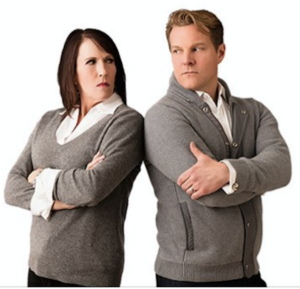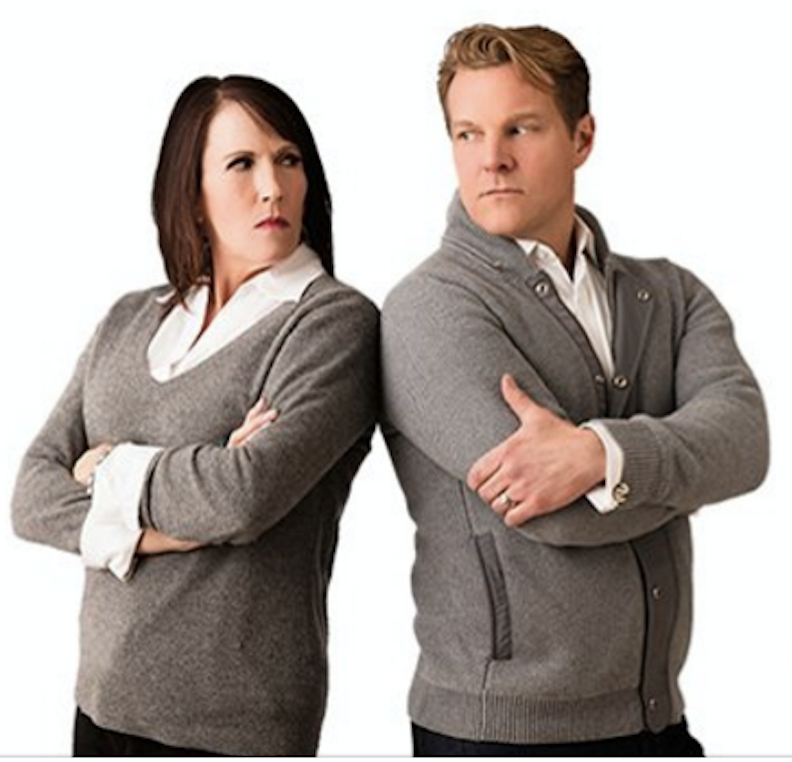 I’ve responded to the election of Donald Trump like a death. On November 8th, I went to bed in denial thinking that maybe I’d wake up, and it would have been a bad dream. Then I was angry that people would vote for someone I considered unfit for the most important job in the world. Next, I was willing to bargain with the courts in Michigan and Pennsylvania to do a recount. And finally, I was just depressed.
I’ve responded to the election of Donald Trump like a death. On November 8th, I went to bed in denial thinking that maybe I’d wake up, and it would have been a bad dream. Then I was angry that people would vote for someone I considered unfit for the most important job in the world. Next, I was willing to bargain with the courts in Michigan and Pennsylvania to do a recount. And finally, I was just depressed.
And then the sadness became fear. Fear that the stuff Donald Trump said on the campaign trail reflected what he would do as president. I worried that he would build walls not just at the borders but within our nation, dividing people by race, ethnicity and religion. But I had to believe that people who voted for Trump weren’t all evil. So I decided to break out of my bubble and try to understand why people supported him. I hoped that this knowledge would combat my fear of the unknown.
Three months ago, I started working with conservative thinker Donna Carol Voss. She and I had clashed the first time we met in November 2015 at a writer’s conference. Even then, she was a defender of the electoral college. Our 2015 argument continued at the 2016 writer’s conference, just a few days after the election. Donna holds onto the electoral college like it’s the Shroud of Turin of American democracy, and I think it’s an outdated concept that makes people feel like their vote doesn’t matter because they don’t live in Ohio or some key battleground state.
It started over drinks.
While I was drinking my $12 one-shot vodka cocktail and she was sipping her Diet Coke, we got into a heated debate. And I let my anger at Trump’s victory take hold of me. I said something rude and then walked away.
I went back to my hotel room, and I realized that I had gone against everything I stood for. How could I champion “agreeable disagreement” and civil discourse if I couldn’t even have a conversation about something as esoteric as the 12th Amendment and Article 2, Section 1 of the U.S. Constitution?
The next day I apologized to Donna, not for disagreeing, but for being disagreeable. And then I challenged her to continue our dialogue. “Let’s tackle other issues,” I said to her. “Let’s figure out how to talk politics and still remain friends.” And she came up with the theme of “Don’t Unfriend Me.” And it morphed a little into the notion that we can disagree on everything but still remain “Donut Friends.” Civility became our core mission.
We stopped shouting and started listening.
For the past few months, we’ve been working on developing this Don’t Unfriend Me concept. At first, we were going to write a book tackling ten controversial issues and talk about how we discussed these issues and remained friends. Then we realized that each of us operated in an echo chamber where we only heard views similar to our own. We realized that each side had its own set of facts, which were there just to support that side’s opinion. We decided to do something about that. We picked a topic – Sanctuary Cities – and started researching. We’ve spent the past two months investigating and debating the topic, and are working on a very detailed paper with all of the information, background, history, data and arguments for/against sanctuary cities.
While working on this deep dive into immigration law, we have managed to stay friends, but we’ve had some real fights along the way. There are times when I haven’t been kind or nice or agreeable or even willing to let her have her opinion. I’ve pushed her to accept what I believed to be true. I wanted to have some hope that conservatives could be convinced to take on board new information and change their views.
Conservatives are stuck in their beliefs
I think this goes to my basic view of conservatives versus liberals: Conservatives are stuck in their beliefs and they have no intention of considering anything not in agreement with their outdated views. Liberalism is inherently about the process of constantly taking on board new information and reassessing what you believe. (Now I recognize liberals have become just as bad as conservatives at stifling different opinions, but I absolutely don’t agree with that approach. To me, it’s contrary to the fundamental nature of liberalism, and I’ll fight against the tyranny of the left as much as I’ll fight against that on the right.)
It’s tough talking politics with Donna. She’s a rabid Trump supporter, and at times, I wonder why we’re bothering to do it. But if we can’t, then I guess I don’t have hope. I will have given in to my fear. And I can’t do that.
In his farewell speech, President Obama warned of a “threat to our democracy” where we retreat to our “safe spaces”, our bubbles where everyone shares our view, where people look just like us, and where our assumption are never challenged.
I know that I can’t hide in my liberal California bubble, praying that God does indeed cause an earthquake splitting my state from the rest of the country. I need to live my core belief: Do unto others as you would have them do unto you. And that means listening to what Donna says, not so that I can reply, but so that I can learn why she thinks the way she does.
And I need to respect her views and not try to change her.
What if my beliefs are the wrong ones?
But to be honest, it’s really hard, because she’s very smart, and she makes me question my judgment: if she believes X, then why do I believe Y? As my husband can tell you, one of my greatest flaws is that it’s not enough for me to be right. I also have to get you to admit that you’re wrong.
But that ain’t civil discourse. That’s not applying the Golden Rule. And that’s not the person I want to be. I want to thank Donna Carol Voss for pushing me out of my safe space and bubble. I look forward to more agreeable disagreement.
